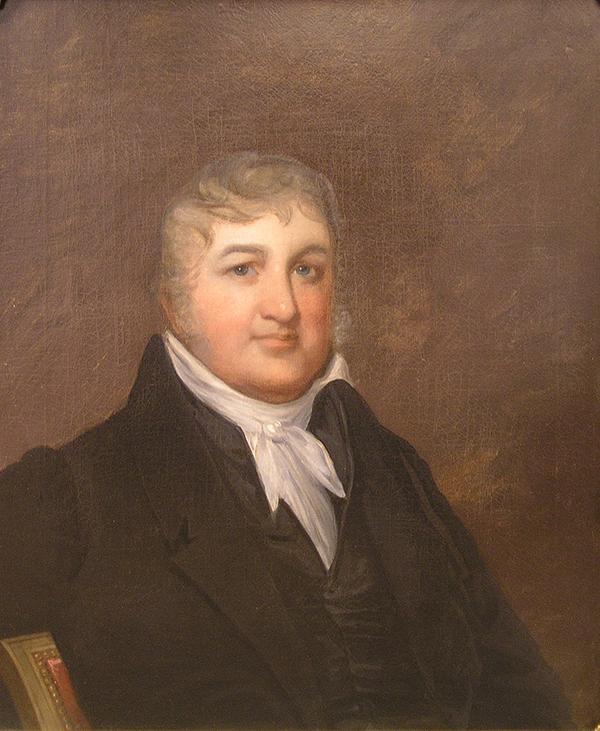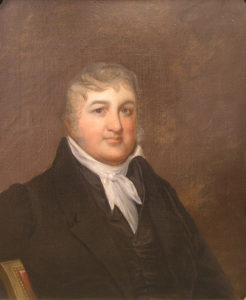George Mathews
George Mathews served as the presiding judge of the Supreme Court of Louisiana from 1813 to 1836.

Courtesy of The Law Library of Louisiana
George Mathews. Unidentified
George Mathews was the second presiding judge—the equivalent of chief justice—of the Louisiana Supreme Court, from March 1, 1813, to November 14, 1836. He was born near Stanton, Virginia, on September 21, 1774, the son of George Mathews and Anne Paul. His father, a colonel in George Washington’s Continental Army, was wounded and held prisoner until 1781. After the war he moved his family to Georgia, where he was elected Representative to the first US Congress (1789–1791) and served as Governor of Georgia in 1787 and again from 1793 to 1796.
George Mathews was educated at home and at Liberty Hall in Lexington, Virginia, where he finished his academic course in 1795. He then studied law with his oldest brother, John Mathews, and with George Walker, an eminent lawyer in Augusta, Georgia. In 1799, at age twenty-five, George Mathews was admitted to the bar in Georgia. He practiced law until he received a recess appointment on July 1, 1805, from President Jefferson to be judge of the Mississippi Territorial Court. His recess appointment ended on January 18, 1806. Jefferson then nominated him to the Supreme Court of the Territory of Orleans on January 20, 1806. When Louisiana achieved statehood on April 30, 1812, Mathews and his colleagues on the territorial court, Joshua Lewis and François-Xavier Martin, remained as de facto judges of the Superior Court of the State of Louisiana until the organization on March 1, 1813, of the supreme court. Mathews was then appointed one of the three judges of the Louisiana Supreme Court. After the early resignation of Dominick Hall, Mathews served as presiding judge, based on his seniority, from July 3, 1813, until his death on November 14, 1836.
Reared by his father in Jeffersonian democracy and trained in common law, Mathews arrived in Louisiana with neither knowledge of civil law nor speaking ability in French or Spanish. Required to ride circuit for half of each year in those early years, Mathews learned to know the citizens, their culture and traditions, and the new civil code of 1808. His placid and genial personality suited the task of establishing the court system among competing interests in the new state, and his long tenure of more than thirty years on the court laid a consistent foundation for Louisiana law. With his common law knowledge and American roots, Mathews was the ideal counterpoint to his long-time colleague, François-Xavier Martin.
Mathews’s first marriage was to Sarah Carpenter. They had one daughter, Anne, who married Capt. William Chase of Chaseland Plantation. After Sarah’s death, Mathews married Harriet Flower in 1809. Her father, Samuel Flower, had purchased land along Bayou Sara, near St. Francisville in West Feliciana Parish, and built Greenwood Plantation. When the original home was destroyed by a fire in 1810, Flower built a larger house, which is the present Butler-Greenwood plantation home. Samuel Flower died in 1813, and title to the plantation passed to Harriet. George Mathews made his home at Butler-Greenwood with his wife and their son, Charles Lewis, although by 1835 he also owned three other plantations: Chaseland and Coco Bend in Rapides Parish and Georgia Plantation in Lafourche Parish. He died at Butler-Greenwood and is buried in the Grace Episcopal Church Cemetery in St. Francisville.
